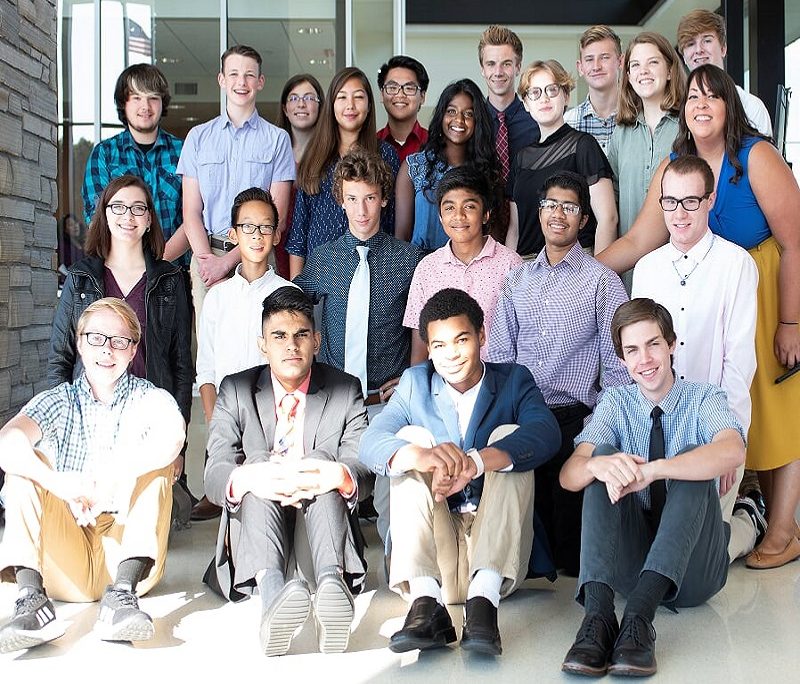
The Strategic Plan represents the contribution of many participants within the TJ community (including parents, faculty, students and alumni) who thoughtfully consider how TJ can build on its strong foundation and continue to improve the world-class education it provides to students.
Read the planThe five main strategic plan objectives are:
Through a dedication to academic excellence, Thomas Jefferson Independent Day School stands accountable for educating students to make the most of their abilities. The School educated students to:
Goal:
The School will maintain and continually review its traditional liberal arts program (including co-curricular and extra-curricular activities) designed to execute the Mission of the School, and to graduate critically-thinking leaders who are well-rounded and engaged citizens capable of succeeding not only in college but also in life.
Rationale:
The School seeks to educate students to make the most of their abilities through a dedication to academic excellence. The School believes that a classic liberal arts program taught by world-class teachers engages students in inquiry and growth and enables them to understand and appreciate the world around them. Through the successful completion of the School’s college preparatory program, students will acquire and refine essential academic knowledge and skills; cultivate an appreciation of the arts; develop lifelong fitness skills; assume responsibility for their behavior; seek out challenge; welcome criticism; test new capacities; practice self-discipline; and find joy in learning. Appropriate extra-and co-curricular activities are designed to enrich and support the School’s program and add to the development of, among others, sportsmanship, leadership, cooperation, resiliency, community engagement, and life skills.
Implementation:
Liberal Arts for the 21st Century
Academic Excellence
Citizenship – developing principled and engaged citizen leaders
College Preparation and Counseling
Goal:
The School will recruit, develop, and retain a world-class faculty dedicated to the education of students and supported by a committed and qualified administration and staff who wholly support and carry out the Mission of the School.
Rationale:
The School believes that an excellent, highly qualified, and committed faculty, administration, and staff who actively support the School’s Mission and program are its greatest asset. As role models to students, each member of the faculty must be dedicated to academic excellence, exemplify intellectual curiosity and joy in learning, and seek out challenge through continuous and meaningful professional development. Faculty members must be devoted to students and effectively challenge and encourage students to make the most of their abilities, be accountable for student progress, and engage in effective communication with parents and students. All employees of the School must actively support the School’s Honor Code by exemplifying its values in word and deed and fully engaging in its application to all situations. All employees will welcome criticism and engage in self-reflection, maintain collegial relationships, understand the meaning and importance of an independent education, set a standard of inclusivity and respect, and demonstrate a dedication to truth, integrity, and self-discipline. Employees of the School will be ambassadors to our constituents and to the community at large.
Implementation:
Recruiting
Professional Development and Mentorship
Excellence;
Ambassadors and Pro-Active Advocates for the School
Evaluation and Compensation
Goal:
Thomas Jefferson will continue to be a safe and vibrant learning community comprised of students who will embody the Mission of the School, actively participate in their own education, and contribute to the vitality of the School. The School will foster, celebrate, and sustain a community of students, parents, faculty and administrators that is strong, supportive, and inclusive based on a commitment to the TJ Mission, shared educational values, tolerance and respect for self and others. The School will maintain and enhance the active involvement in the community by alumni, alumni parents, and friends of Thomas Jefferson. The School will achieve a critical mass of qualified students to achieve a healthy and vibrant community, and welcome new members with enthusiasm.
Rationale:
Thomas Jefferson exists to provide each and every student with an outstanding education as articulated in the School’s Mission. A critical mass of qualified students is necessary to accomplish the School’s Mission and to support its programs. The quality of the educational experience depends heavily upon the student body — its aptitude, initiative, intellectual curiosity, and willingness to put forth effort in pursuit of the joys of accomplishment. A strong sense of community shared by all constituencies is essential and fosters an environment where students feel valued and encouraged to make the most of their abilities. Successful academic, artistic, and athletic programs enhance a sense of school pride. The School must create and maintain an atmosphere where hard work, moral character, fair play, and participation in school activities are expected and valued for which high standards are encouraged, respected, and recognized.
Implementation:
Identity
Ambassadors and Mentors
Volunteerism and Stewardship
Growth
Tradition
Alumni, Alumni Parents, and Friends
Orientation
Communication
Goal:
The School will achieve broad-based financial support through a combination of tuition and philanthropy necessary to ensure its long-term sustainability, fulfill the School’s Mission, and support the priorities of the Strategic Plan.
Rationale:
A sustainable financial plan based on both tuition and broad philanthropic support are essential to the School’s success and to providing the resources required to support its Mission and provide a world-class education to its students.
Implementation:
Education and Communication
Stewardship and Philanthropy
Affordability and Enrollment
Goal:
The School will provide a welcoming and safe physical environment, meeting both enrollment and program requirements, which fosters a love of learning, community, and supports the School’s Mission.
Rationale:
The School believes that an inviting and safe learning environment directly supports the successful execution of its Mission. As the representative for educational excellence in the community, the School must continuously maintain, and as appropriate, seek to improve its existing facilities. It must also develop new facilities, as necessary, to support growth and program enhancement.
Implementation:
Safety;
Community Pride of Ownership
Optimization
Facilities Planning
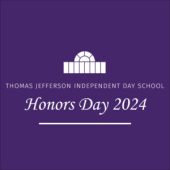
In Latest, News
Thomas Jefferson Independent Day School (TJIDS) proudly announces the 7-12th grade students who received awards during the TJIDS Honors Day ceremony on Tuesday, April 30. Honors Day is a highly regarded tradition at TJIDS, during […]
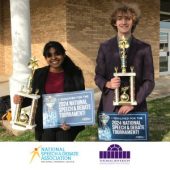
In Latest, News
Thomas Jefferson Independent Day School (TJIDS) is proud to announce two members of the Debate Team have qualified for the National Speech and Debate Association (NSDA) National Tournament. Two Juniors and debate partners, Layton Green […]
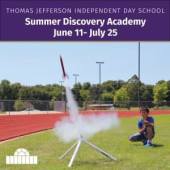
In Latest, News
Registration is now open for the Thomas Jefferson Independent Day School (TJIDS) 2024 Summer Discovery Academy. All Pre-K through 12th-grade students in the four-state area are invited to participate in the two-month summer enrichment program. […]
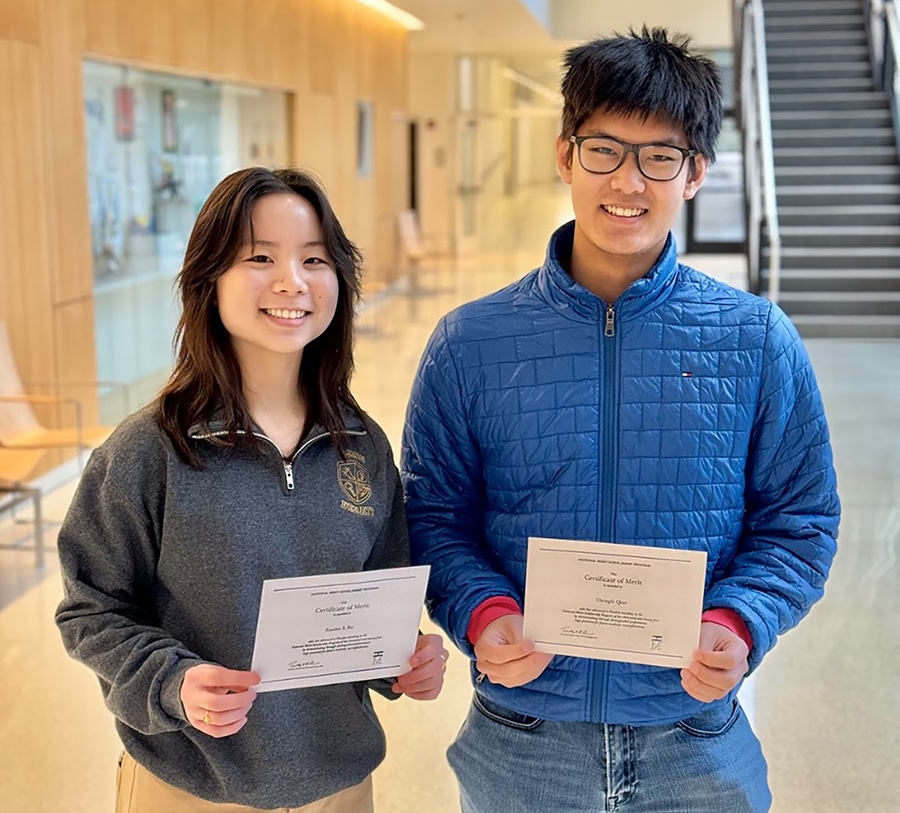
In Latest, News
Congratulations to two Thomas Jefferson Independent Day School (TJIDS) seniors, Emalee Ro and Chengle “Lele” Qian, for being named National Merit Scholarship Finalists. With this year’s recognition, TJIDS continues a longstanding track record of producing […]
TJ is an important part of the community, not only because of the educational program it provides, but because of the impact the school has on families and businesses in the entire Four-States region.